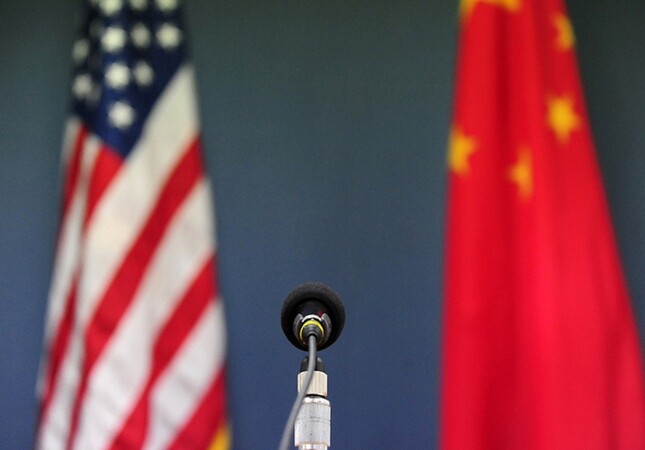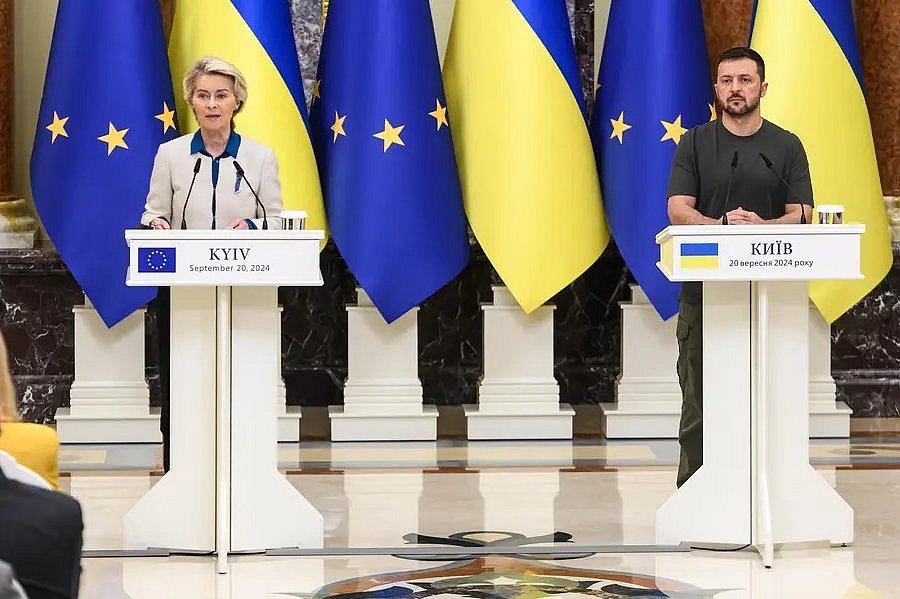By emphasizing that China wants to "surpass" the US but bilateral relations can reach a "stable point," US President Joe Biden continued with the policy of maintaining competition with China while avoiding clashes after US Treasury Secretary Janet Yellen's visit, and analysts said there may be more high-level interactions between China and the US in the coming months under the relatively "stable but fragile" situation, which may, however, also be easily undermined if the US continues its wrong perception of China.
Talking about relations with China in an interview with CNN's Fareed Zakaria on Sunday, Biden said that China has "enormous potential and enormous problems" and it wants to surpass the US, but bilateral relations with China can reach a "stable point."
Biden's latest remarks closely followed Yellen's visit to China, during which she held 10 hours of "direct" and "productive" meetings with senior Chinese officials. Before departing China on Sunday, Yellen said that the US and China remained at odds on a number of issues, but the senior official also expressed confidence that her visit had advanced efforts to put bilateral relations on a "surer footing," Reuters reported.
China's Ministry of Finance also described Yellen's meetings with Chinese senior officials as "candid, pragmatic, in-depth and constructive" in a statement on Monday. It said that it is hoped that the US can take a rational and pragmatic attitude to work in the same direction as China to implement the consensus reached by the heads of state in Bali in November 2022 and to promote the bilateral relations back to the right track at an early date.
Although Yellen's visit did not bring any breakthroughs, it demonstrated the thawing of bilateral relations. Chinese analysts said that Biden's remarks as well as the recent frequent high-level interactions between China and the US may hint at a high possibility of a meeting between the heads of state during the Asia-Pacific Economic Cooperation (APEC) summit in November in San Francisco.
The head-of-state diplomacy has played an irreplaceable role in guiding bilateral relations, and more work needs to be done to create favorable conditions for a possible meeting at the upcoming APEC to happen, they noted.
Crux hard to solve
After US Secretary of State Antony Blinken's visit to China, interactions have increased as both sides want to seize the opportunity to prevent bilateral relations from further declining. But the Biden administration's China policy has never changed and its current moves to stabilize bilateral relations are aimed more at keeping its competition with China within a secure zone for its own interests, Sun Chenghao, a fellow and head of the US-EU program at the Center for International Security and Strategy in Tsinghua University, told the Global Times on Monday.
Biden's latest remarks on China-US relations also highlighted the nature of its China policy - preventing bilateral relations from breaking through the bottom line while maintaining its competitive strategy against China, said Sun.
Currently, China-US relations are in a relatively "stable but also fragile" period with both sides working to push for a stable period, but some fundamental problems are hard to solve, said the expert.
Biden's latest remarks highlighted the US political elites' anxiety and lack of confidence as they seek to maintain communication with China while at the same time fear being surpassed. China has the potential to surpass the US - this is decided by each country's development stage and will not be prevented by some US politicians, Li Haidong, a professor at the China Foreign Affairs University, told the Global Times.
Li said that China-US relations are at a crucial crossroad and may fall into the Thucydides trap - a historical analogy used to warn against the potential for imminent conflict between the US and China or their relations can go down the path which complies with the three principles of mutual respect, peaceful coexistence and win-win cooperation, which the Chinese leader has put forward.
While China and the US have been seeking more exchanges, rifts remain as the US continues to impose sanctions on Chinese companies, tout "de-risking" and "de-coupling" rhetoric, pour weapons into the island of Taiwan, assault Chinese firms on fentanyl issues and pull together small cliques to contain China.
In the statement released on Monday, China's Ministry of Finance also called on the US to take actions to respond to China's major concerns over US' economic sanctions, including lifting additional tariffs on Chinese products, stopping suppression of Chinese companies, relaxing export restrictions on China and lifting bans on imports of all products related to China's Xinjiang region.
The crux of China-US relations lies in the US political elites' wrong perception of China. It is difficult to change the main tone of bilateral relations, especially when the Biden administration is working to nail down relations as "competition" and some anti-China politicians keep making noises, said analysts.
While the world paid attention to how China and the US will stabilize their rocky relations during Yellen's visit to China, some US media and politicians attacked her for "bowing" to Chinese officials before their meeting.
Li said that it is the view of a group of Western politicians, scholars and think tanks that conflict is the inevitable destiny for China and the US, as this caters to their needs, ambitions and interests, but does not fit the reality and future of bilateral relations.
The expert predicted that there will be more constructive interactions between China and the US in the near future, including in the field of climate change, but how to ensure that bilateral relations can be prevented from further declining and remain stable needs not only political wisdom, but also concrete actions from the Biden administration.
Photo: China US Photo © VCG
Source: The Global Times.
































